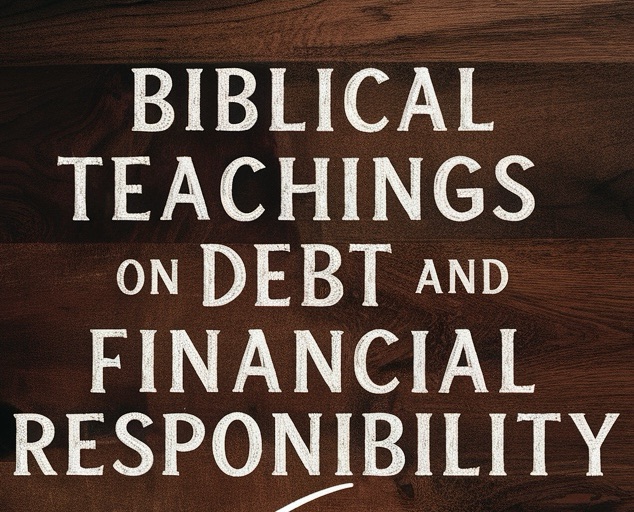In a world where material possessions often measure success and happiness, it can be challenging to maintain a Christian perspective that values spiritual wealth over material gain. As Christians, we are called to live a life that transcends the allure of materialism, focusing instead on spiritual growth, compassion, and a deeper connection with God.

Understanding Materialism in a Modern Context
Materialism, in its essence, is the focus on accumulating physical possessions and allowing them to dictate one’s happiness and self-worth. In today’s society, where consumer culture is prevalent, it’s easy to fall into the trap of believing that more stuff equals more happiness. However, as Christians, we are reminded in 1 Timothy 6:10 that “the love of money is the root of all kinds of evil.” This scripture doesn’t condemn wealth itself but highlights the danger of allowing it to control our lives.
The Christian Perspective on Wealth and Possessions
Christianity doesn’t inherently oppose wealth or owning possessions. Many biblical figures were blessed with abundance. However, the key lies in our attitude towards wealth. Luke 12:15 says, “Watch out! Be on your guard against all kinds of greed; life does not consist in an abundance of possessions.” This teaches us that our life’s value isn’t measured by our material wealth but by our relationship with God and others.
Finding Fulfillment in Spiritual Riches
True fulfillment in the Christian life comes from spiritual riches that material wealth cannot provide. Galatians 5:22-23 speaks of the fruit of the Spirit – love, joy, peace, forbearance, kindness, goodness, faithfulness, gentleness, and self-control. Cultivating these qualities brings deeper satisfaction than any material possession can offer.

Practical Ways to Live Beyond Materialism
- Practice Gratitude: Regularly acknowledging and thanking God for what you have can shift your focus from what you lack to the abundance already present in your life.
- Generosity: Acts of giving, whether of time, resources, or talents, can help loosen the grip of materialism. It aligns with Jesus’ teaching in Acts 20:35, “It is more blessed to give than to receive.”
- Mindful Consumption: Being thoughtful about purchases and resisting impulsive buying can help maintain a healthy perspective on material possessions.
- Invest in Relationships: Building strong relationships with family, friends, and community provides emotional and spiritual fulfillment that material goods cannot.
- Spiritual Disciplines: Engaging in regular prayer, Bible study, and fellowship with other believers keeps our focus on spiritual growth and God’s kingdom.
As Christians, our journey is not about accumulating wealth and possessions but about living a life rich in faith, love, and service to others. By embracing a lifestyle that prioritizes spiritual growth over material gain, we find true joy and contentment that transcends the temporary satisfaction of worldly possessions. Let us remember Matthew 6:19-21, which reminds us to store up treasures in heaven, for where our treasure is, there our heart will be also.
In a world that often equates success with material wealth, it can be a profound challenge for Christians to navigate a path that honors their faith while resisting the lure of materialism. The Bible offers timeless wisdom on this subject, guiding believers towards a life of spiritual abundance that transcends worldly possessions.
The Biblical View of Material Wealth
The Bible doesn’t condemn wealth or possessions in themselves; rather, it offers caution about their potential to distract and mislead. In Matthew 6:24, Jesus states, “No one can serve two masters. Either you will hate the one and love the other, or you will be devoted to the one and despise the other. You cannot serve both God and money.” This powerful message reminds us that our primary allegiance should be to God, not to the accumulation of wealth.
Contentment Over Consumption
Paul speaks about contentment in Philippians 4:12-13: “I know what it is to be in need, and I know what it is to have plenty. I have learned the secret of being content in any and every situation… I can do all this through him who gives me strength.” This passage teaches us that true contentment doesn’t come from material possessions but from our relationship with God.
Generosity: A Christian Virtue
Generosity is a key theme throughout the Bible. In Acts 20:35, we are reminded, “It is more blessed to give than to receive.” This principle encourages Christians to view their resources as a means to help others, rather than solely for personal gain. By giving generously, we not only help those in need but also cultivate a heart that finds joy in sharing rather than hoarding.
Living Simply to Live Fully
The concept of simplicity is deeply rooted in Christian teachings. In 1 Timothy 6:6-8, it is written, “But godliness with contentment is great gain. For we brought nothing into the world, and we can take nothing out of it. But if we have food and clothing, we will be content with that.” This scripture encourages believers to focus on what is essential and to find joy in the simple blessings of life.
Investing in Eternal Treasures
Matthew 6:19-21 urges believers to focus on eternal treasures: “Do not store up for yourselves treasures on earth, where moths and vermin destroy, and where thieves break in and steal. But store up for yourselves treasures in heaven… For where your treasure is, there your heart will be also.” This passage reminds Christians that the pursuit of spiritual growth and heavenly rewards is far more valuable than any earthly wealth.
As Christians, we are called to a different standard – one that values spiritual riches over material wealth. By following biblical teachings on contentment, generosity, simplicity, and investing in eternal treasures, we can lead a fulfilling life that honors God and brings true joy. Let us embrace this journey with faith, knowing that our greatest riches are found not in what we own, but in our relationship with God and in the love we share with others.
How Can I Find Contentment in a Materialistic Society?
Answer: Philippians 4:11-13 offers guidance, “I have learned to be content whatever the circumstances. I can do all this through him who gives me strength.” This passage teaches us that contentment is a learned trait, rooted in our faith and reliance on God, not in our material possessions.
Is It Wrong to Have Wealth or Enjoy Material Things?
Answer: 1 Timothy 6:17 advises, “Command those who are rich in this present world not to be arrogant nor to put their hope in wealth, which is so uncertain, but to put their hope in God, who richly provides us with everything for our enjoyment.” This scripture suggests that wealth itself is not evil; it’s the love of money and placing it above God that leads to problems.
How Should Christians View Their Material Possessions?
Answer: In Luke 12:15, Jesus warns, “Watch out! Be on your guard against all kinds of greed; life does not consist in an abundance of possessions.” This teaches us to view our possessions as temporary and not the essence of our lives. Our focus should be on spiritual growth and relationships.
What Does the Bible Say About Generosity?
Answer: 2 Corinthians 9:6-7 states, “Whoever sows sparingly will also reap sparingly, and whoever sows generously will also reap generously. Each of you should give what you have decided in your heart to give, not reluctantly or under compulsion, for God loves a cheerful giver.” This passage highlights the importance of generosity as a reflection of our faith and love.
How Can I Resist the Temptation of Materialism?
Answer: Romans 12:2 offers wisdom, “Do not conform to the pattern of this world, but be transformed by the renewing of your mind. Then you will be able to test and approve what God’s will is—his good, pleasing and perfect will.” This encourages us to focus on spiritual renewal and seeking God’s will, rather than conforming to worldly desires.
What Should Be the Christian’s Ultimate Goal Regarding Wealth?
Answer: Matthew 6:33 provides a clear directive, “But seek first his kingdom and his righteousness, and all these things will be given to you as well.” This verse reminds us that our primary goal should be to pursue God’s kingdom and righteousness, and all our needs will be met according to His plan.
As an Amazon Associate we earn from qualifying purchases through some links in our articles.



